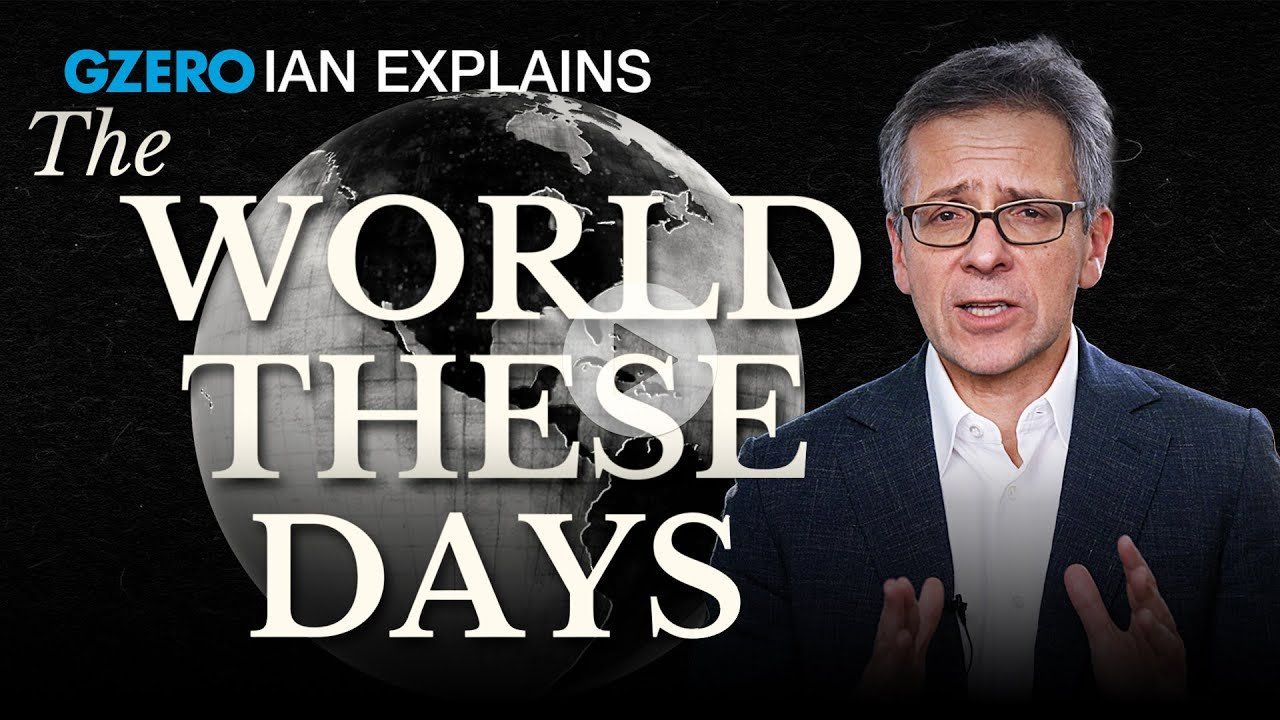Ian Explains
Ian Explains: 2023: A good year for warmongers

Ian Explains: 2023: A good year for warmongers | GZERO World with Ian Bremmer

2023 was a rough year for people who want peace in the world, whether it was the war in Ukraine, Gaza, or the one Americans seem to be fighting against each other.
Looking ahead to 2024, one phrase may be coming back to you: The wheels are coming off.
As Ian Bremmer explains, for years, he has been warning that our GZERO world – characterized by a lack of global leadership and the geopolitical conflict that grows as a consequence – was gathering speed. That acceleration is only increasing today while channels of international cooperation – multinational institutions, traditional alliances, and global supply chains – are losing their ability to absorb shock.
Today, when we speak of war, we've got to specify which war we're talking about. Is it the war in Ukraine that's remaking the security architecture of Europe, or is it the war in Gaza that's destabilizing the Middle East and threatening global religious conflict? Or is it the war that the Americans are fighting amongst themselves?
Look, we don’t mean to be all grinchy. There’s plenty of good news to chase the bad. US-China relations are relatively stable compared to years past. India, for all its shortcomings, is a politically stable democracy, and it’s emerging as a crucial bridge between the Global South on one side and the US, Japan, and Europe on the other. The EU is stronger than ever, and Mexico is poised to enter a year of political stability.
It’s safe to say it’ll be a tough year ahead. Stay with GZERO and Ian Bremmer; we'll keep trying to make sense of it all.
In this Quick Take, Ian Bremmer breaks down the protests across Iran and how the Trump administration might respond.
Welcome to the Jungle